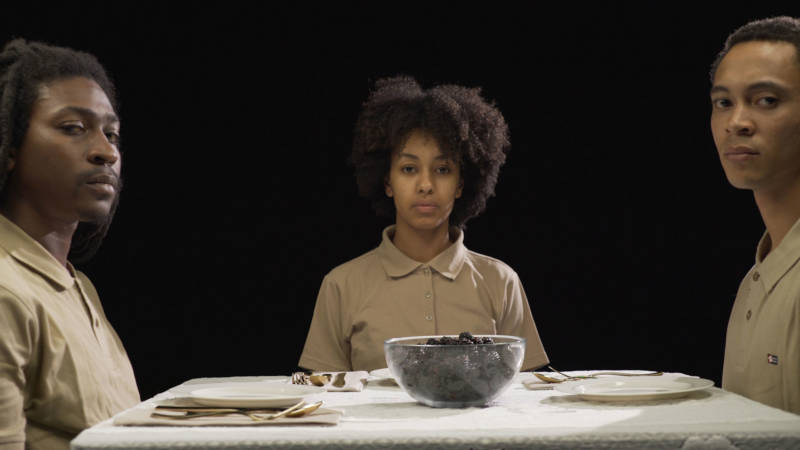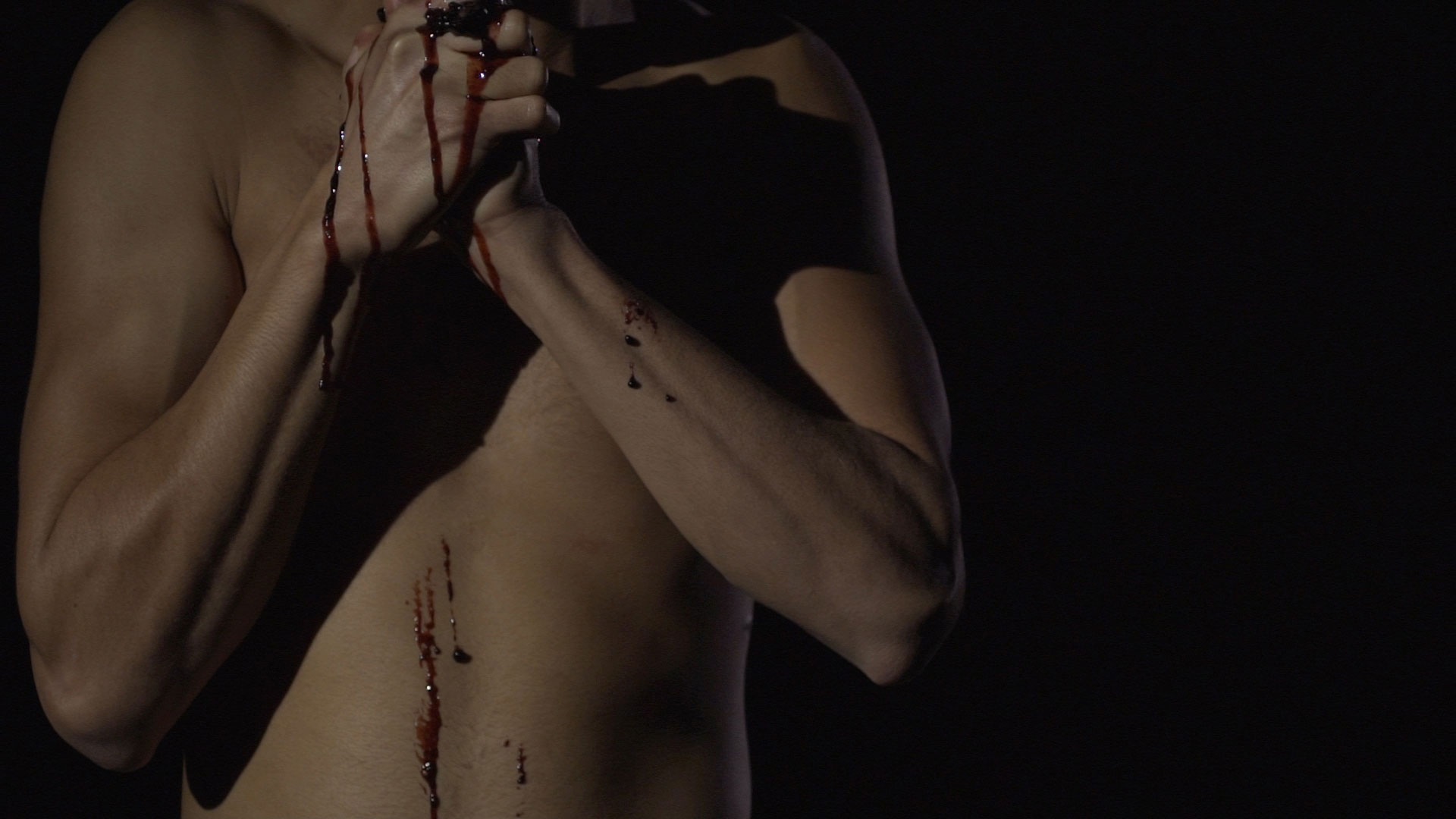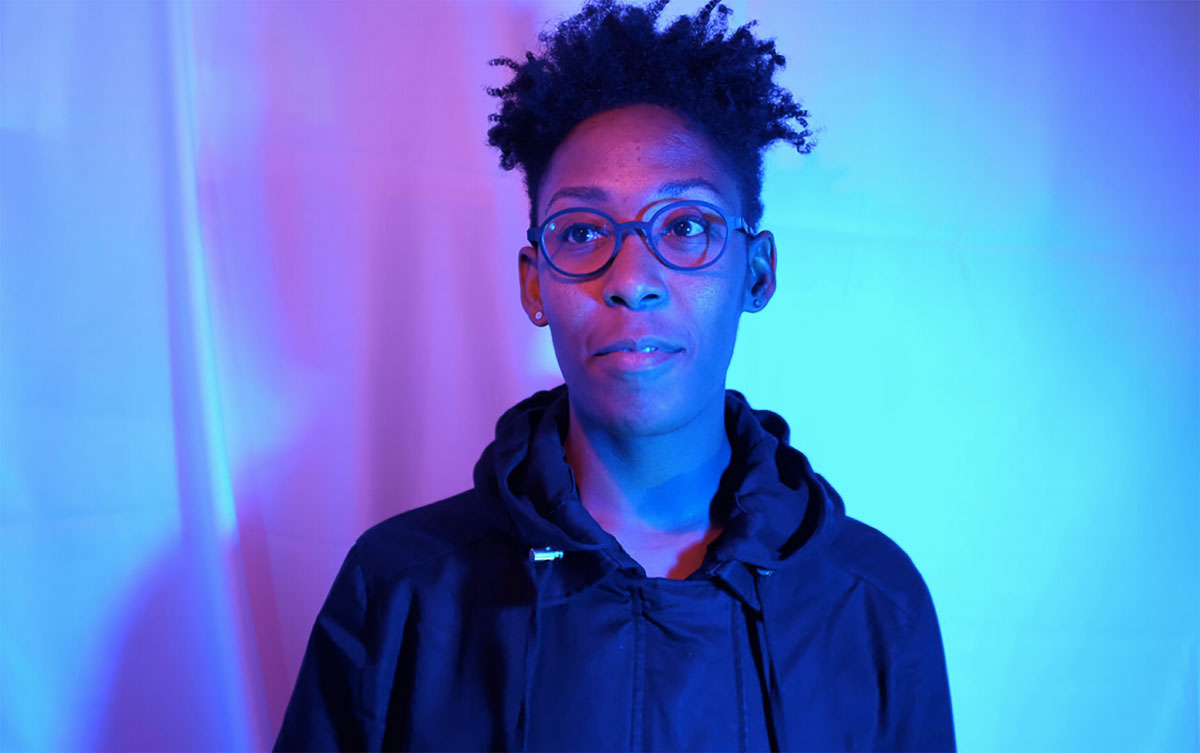Leila Weefur’s Between Beauty & Horror started as a dream.
The two-channel video installation, projected large-scale on opposite walls of Oakland’s Aggregate Space Gallery, runs just over 17 minutes in length. The space between is divided diagonally by a 8-foot tall and 30-foot-long wall punctuated by two windows of one-way tempered glass. Everything in the darkened gallery is painted black. The only light comes from the projections themselves, which are also, often, mostly black.
Balanced against that darkness is a careful attention to sensorial details. Booming ominously out of surround-sound speakers is the video’s score, a collaboration between Oakland-based Weefur and KYN (electronic music duo Yari Bundy and Josh Casey). And the video itself covers the tactile and taste bases with a variety of fabric textures (lace, thick cotton, knit balaclavas) and dripping fruit juice (always blackberries).
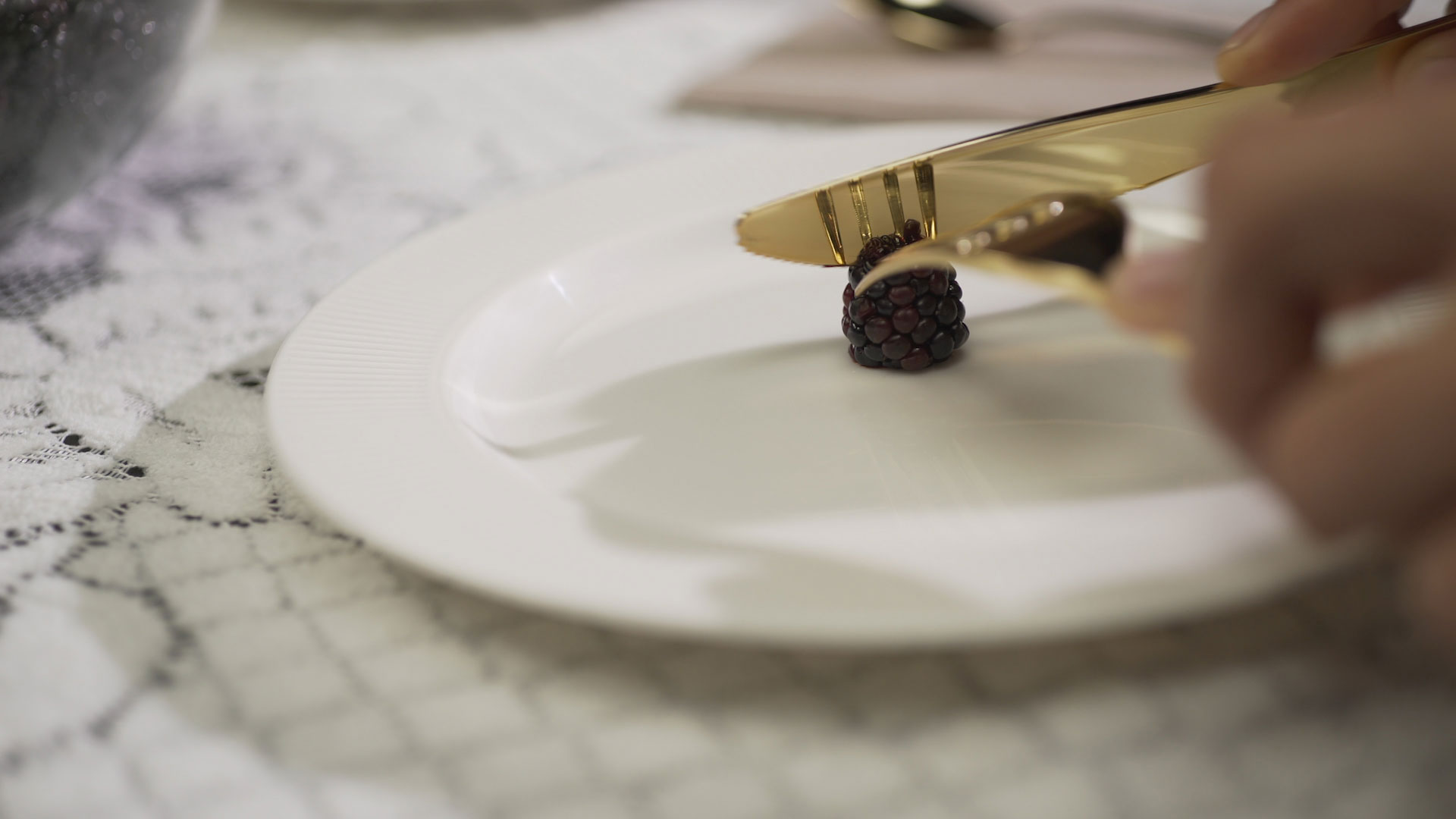
Because it all started as a dream, the narrative structure of Between Beauty & Horror operates on dream logic. A voiceover describes a memory of a group of five friends standing in a circle, but later, the same voice says they’re sitting, apparently without contradiction. The friends are laughing, but then they’re not. They point finger guns at one another, and because it’s a dream, one friend’s finger turns into an actual gun.
Each step of the narration begins with “All I can remember,” as “all” becomes more and more, morphing from happy memory into nightmare. Interspersed among the dream scenes are moments that shift fluidly between violence, playfulness, tenderness, and of course, beauty and horror.
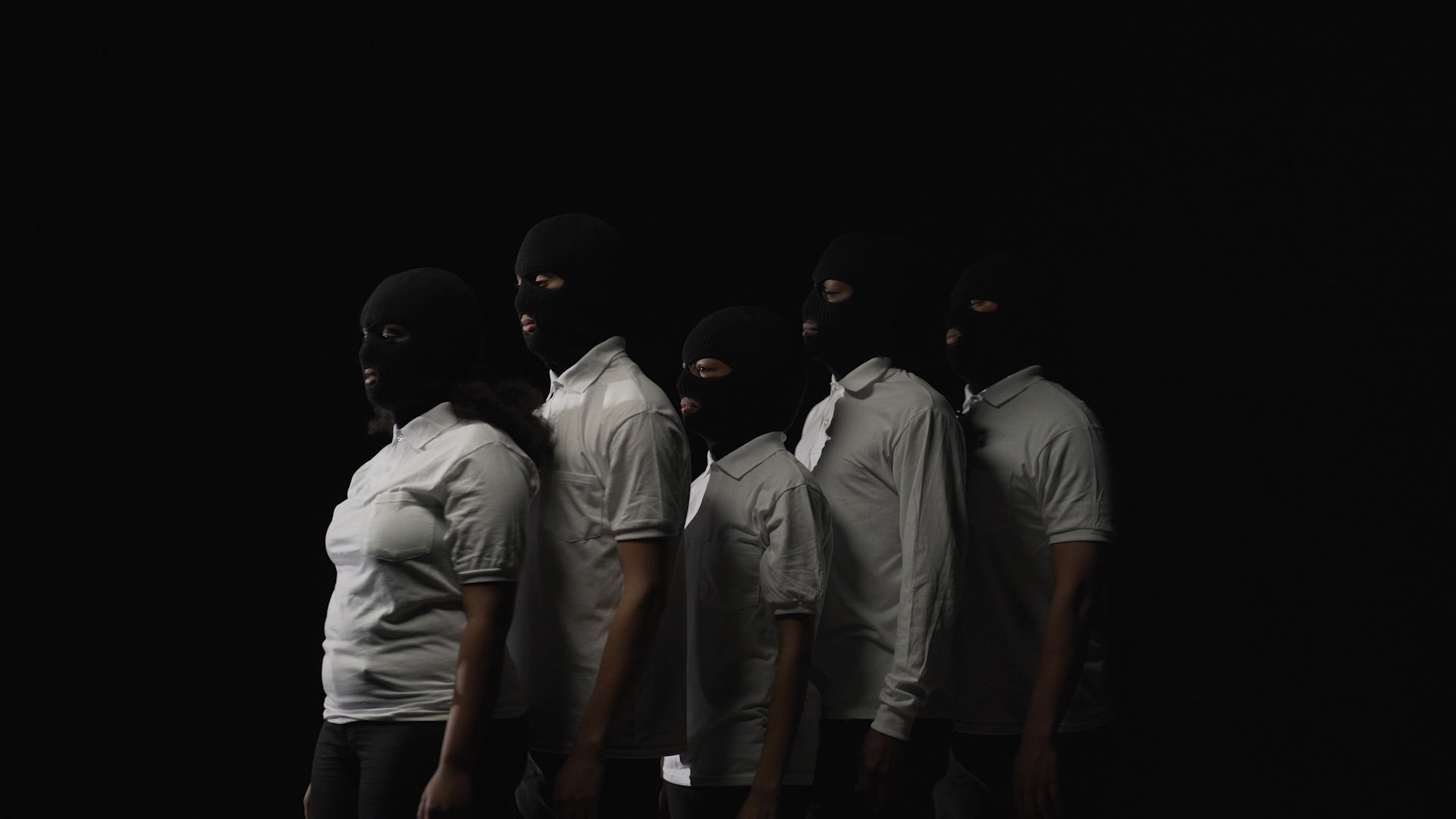
“This whole piece is about the ways black folks often have blackness imposed on them in this very specific way,” Weefur says. “And oftentimes they have to assimilate into a kind of blackness in order to be in community with each other.”
